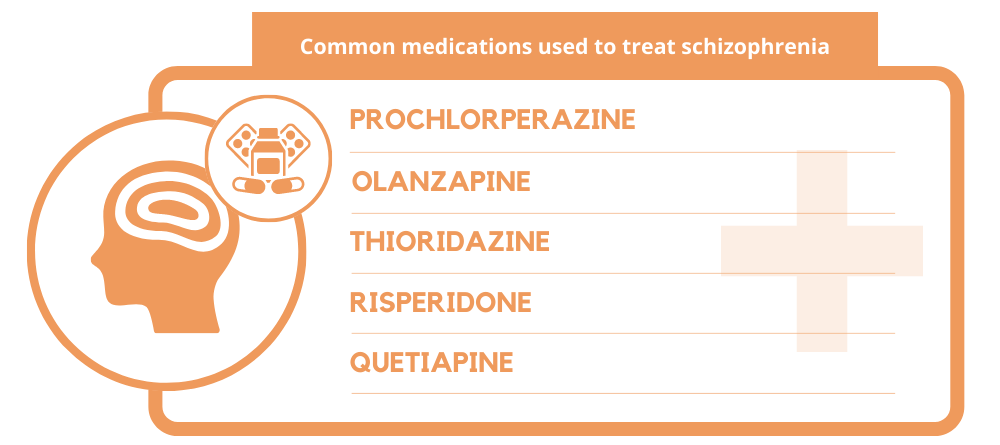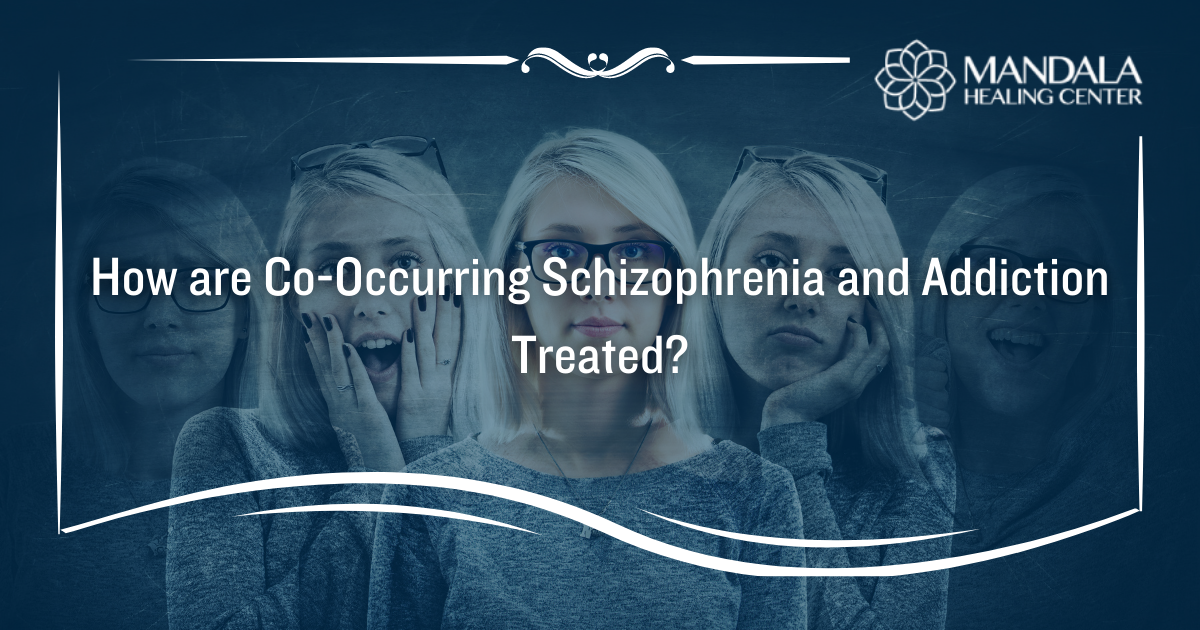Nearly 50% of individuals diagnosed with schizophrenia meet the criteria for a substance use disorder.[1] The conversation surrounding the cause of this comorbidity has been ongoing, with genetic vulnerability, neurobiological aspects, psychosocial factors, and even the side effects of medication being considered. Whatever causes schizophrenia and addiction to co-occur, this dual diagnosis certainly requires extensive professional treatment.
When a substance use disorder and a mental health condition co-occur, the two conditions must be treated simultaneously. This is especially true with schizophrenia and addiction, as the symptoms of unmanaged schizophrenia often lead to addiction relapse and vice versa. Because of this, individuals diagnosed with both schizophrenia and substance use disorder should attend a dual diagnosis treatment program.
Understanding the Relationship Between Schizophrenia and Addiction
There are many factors behind the comorbidity of these two conditions. It is argued that it is most common for individuals with schizophrenia to begin abusing substances as a means of self-medication. Oftentimes, people with schizophrenia report abusing drugs and alcohol to feel “normal.” Unfortunately, this usually leads to worsened symptoms of psychosis and paranoia.
Additionally, it is important to understand that substance abuse does not cause schizophrenia. However, abusing substances can cause an individual with the genetic markers for schizophrenia to begin experiencing symptoms. In other words, certain substances can trigger individuals to develop schizophrenia if they have the genetic risk factors already. Because of this, it can appear like an individual’s substance abuse caused schizophrenia.
How are Schizophrenia and Addiction Treated?
Schizophrenia and addiction are comorbid conditions that can be difficult to treat. This is because the symptoms of both conditions tend to exacerbate one another, leading to a worsening of symptoms. Because schizophrenia causes symptoms like paranoia, many individuals may be resistant to treatment due to a mistrust of medical facilities and unfamiliar people, places, or things. However, with individualized treatment plans and a qualified dual diagnosis facility, recovery is possible.
Dual Diagnosis Facility
Attending a dual diagnosis facility for the treatment of co-occurring schizophrenia and addiction is of the utmost importance. While traditional rehab programs are equipped to treat various types of substance use disorders, they may fall short when it comes to mental health treatment.
Dual diagnosis facilities hire experienced psychologists and psychiatrists who specialize in certain psychiatric disorders like schizophrenia. These programs are equipped to deal with even the most severe symptoms of schizophrenia, while traditional addiction treatment programs are not.
Medications
Individuals with co-occurring schizophrenia and substance use disorder typically require pharmacological treatment. For schizophrenia, individuals will most likely be given an antipsychotic medication to manage symptoms such as paranoia, delusions, hallucinations, and prevent severe psychosis episodes. Many individuals diagnosed with schizophrenia will remain on medication long-term to manage their symptoms.[2]
Common medications used to treat schizophrenia include:

- Prochlorperazine
- Olanzapine
- Thioridazine
- Risperidone
- Quetiapine
In addition to medication for schizophrenia, some individuals will take medications to manage the cravings and withdrawal symptoms associated with addiction. Doctors will work with psychiatrists to ensure the medications prescribed will not cause negative interactions before administering them to patients.
Psychotherapies
Both conditions require the use of individual therapies for individuals to recover. For schizophrenia, therapy is used to help individuals learn how to cope with symptoms that may be resistant to medications. Additionally, individuals who have schizophrenia and a history of trauma will undergo individual therapy to identify and work through their past trauma.
Common therapies for schizophrenia include:
- Cognitive-behavioral therapy (CBT)
- Supportive psychotherapy
- Cognitive enhancement therapy (CET)
When it comes to individual therapy for addiction, patients will be taught how to regulate their emotions, identify triggers for substance abuse, and learn positive coping mechanisms. Cognitive-behavioral therapy is also commonly used to treat addiction, as this type of behavioral therapy helps individuals learn how to manage their emotions.
In addition to CBT, the following therapies are used to treat addiction:[3]
- Contingency management (CM)
- Motivational enhancement therapy
- The matrix model
- 12-step facilitation therapy
- Family behavior therapy
Social Support
Lastly, social support modalities are used to treat co-occurring schizophrenia and addiction. Because poor social skills are common symptoms among both conditions, teaching these individuals how to function effectively in society is important to their recovery. Social support may include social skills training, vocational rehabilitation, and support groups like AA or SMART Recovery.
Find Treatment for Schizophrenia and Addiction in West Palm Beach Today
If you or a loved one suffer from comorbid schizophrenia and addiction, attending dual diagnosis treatment is extremely important. At Mandala Recovery Center, our staff members are licensed and experienced in treating several different co-occurring disorders. With a combination of evidence-based therapies, medication management, and social support programs, we provide our dual diagnosis patients with a strong foundation of recovery from addiction and schizophrenia.
Contact us today for more information on our substance abuse treatment programs.
References:
- https://www.ncbi.nlm.nih.gov/pmc/articles/PMC3181760/
- https://www.nami.org/About-Mental-Illness/Mental-Health-Conditions/Schizophrenia/Treatment
- https://nida.nih.gov/publications/principles-drug-addiction-treatment-research-based-guide-third-edition/evidence-based-approaches-to-drug-addiction-treatment/behavioral-therapies












